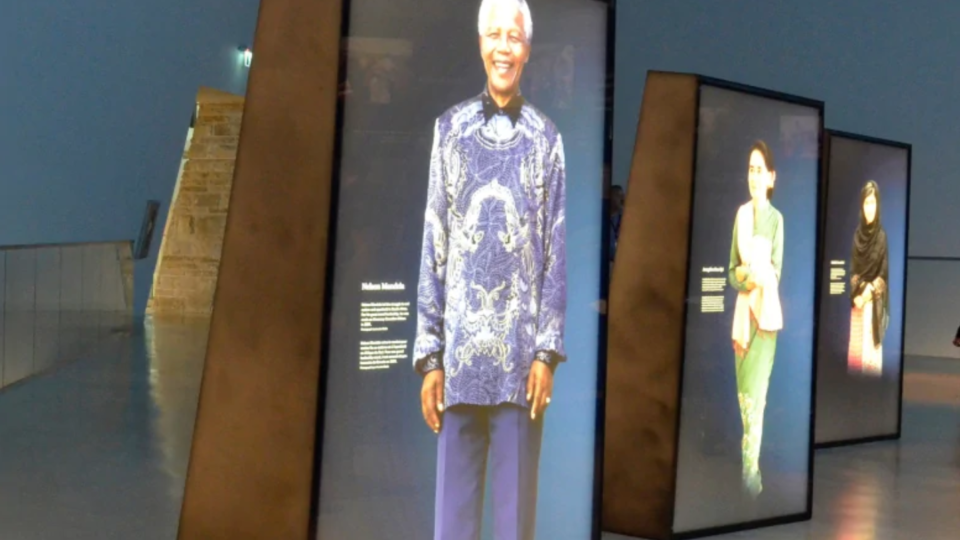References to Myanmar’s state counsellor Aung San Suu Kyi are being removed from an exhibit at the Canadian Museum for Human Rights in Winnipeg after months of public criticism of her refusal to stand against the Myanmar military’s mass expulsion and murder of Rohingyas.
The former rights icon’s story will no longer appear on a timeline of human rights moments in history on the museum’s second floor. An image of her on the fourth floor that appears beside images of Nelson Mandela and the Dalai Lama will remain in place but has been dimmed.
“It was a very beautiful moment of relief,” one Rohingya community member in Ottawa told Canadian broadcaster CBC.
The move comes several months after the museum first announced that it was considering removing references to Aung San Suu Kyi from its exhibits in Nov. 2017. Rohingyas in Canada had petitioned the museum, saying they did not want children to see Aung San Suu Kyi as a hero or someone to look up to.
After the removal decision was made, Angela Cassie, the museum’s vice-president for public affairs and programs said: “We recognize that it’s painful for members of the community to see her face in this exhibition.”
She explained that the remaining image of the state counsellor cannot be removed because it is in an exhibit about Canada’s six honorary citizens, of whom Suu Kyi is one. However, she said the museum plans to place a panel with additional information in front of her image in order to teach visitors the importance of questioning leaders’ actions.
The museum is also reportedly considering replacing Aung San Suu Kyi’s place on the human rights timeline with a reference to the Rohingya.
The decision of the Canadian Museum for Human Rights is the most recent in a series of moves by human rights and education institutions to reverse honors given to Myanmar’s de facto leader. Last year, she was kicked out of the UK’s second-largest trade union, Bristol University suspended her honorary degree, and the student union at the London School of Economics stripped her of her honorary presidency.
The city of Oxford also stripped her of an award she received in the 1990s, and Oxford University’s St. Hugh’s College removed a portrait of her from its wall. In March, the US Holocaust Museum revoked a human rights award it had given her in 2012, citing her inaction over “mounting evidence of genocide” against the Rohingya.




